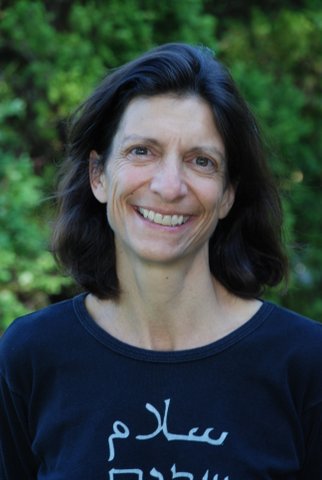Mar 23, 2014
Global Learning Partners (GLP): What’s your favorite axiom, and why?
Valerie Uccellani (Val): Pray for Doubt. Funny. I didn’t used to like this one. In fact, when we taught axioms in the introductory course, I sometimes deleted it from the binder; I didn’t want the language to make some people feel excluded. Not everyone “prays”. But now I love this axiom and I like saying it to myself when I’m not sure how to make sense of what’s going on around me – or what to do next.
Doubt opens us up. When we have doubt, we become curious.
And, with that curiosity, we grow.
GLP: Name 3-5 of your favorite facilitation skills. Describe what you use them for and why they’re favorites.
Val: My all-time favorite has been to trust my gut. It’s in none of the “facilitation skill” materials I’ve created over the years. But it ought to be. I’ve found that if I pause, and listen to my gut, I get good direction about how to proceed. And as I’ve listened to my gut over the years, I feel like it’s grown stronger – like a muscle.
GLP: Of all the DE principles, which 2-3 do you like the best? Why?
Val: I think immediately of the principles and practices which Jane Vella has called “the signs of Dialogue Education.” I use them a lot when working with clients on creating new programs and learning designs. I check:
- Are the learners being productive?
- Is there substantive content injected into this learning experience for them?
Yes, I like substantive content and productivity for the learners!
GLP: When you attend learning events that are not learning centered, what’s your biggest pet peeve?
Val: That’s easy! I abhor fake listening. It happens in so many ways in so many places, even by really well-intentioned leaders and facilitators. We want people to think X, to know X, to believe X. Instead of just saying what we think, know or believe, we craft a series of questions that “guides” people to arrive at our conclusions. This drives me crazy. And, when I’ve inadvertently done it myself I regret it terribly.
GLP: Why do you love DE?
Val: It creates a space for people to be true to themselves and different from others. It creates a space for us to learn together and move in a direction that feels right for us.

GLP: When you think about all of your work as a facilitator/teacher/consultant, what learning transfer makes you the most proud? Share the story.
Val: Thank you for asking that question. I hadn’t thought about this moment in a long time. I was in Mozambique, working as the leader of a group of teachers/ trainers for the Peace Corp. I had worked for a month or more with a team of young teachers. I had tried to model, and explain, the principles behind a learning-centered, dialogue approach. I hoped they would bring it with them into their own classroom teaching with Mozambican students.
One day, I sat in the back, observing a class. There were unmovable benches, 3 children in each one (crammed together). The students had learned that they only speak when spoken to, and when they answer a question they stand up. I watched them all, noticing in particular a young woman who sat hunched at her seat. Clearly she didn’t want to look up for fear she’d get called on. As I continued my observations I watched her – like a plant whose growth would indicate to me the healthiness of the garden.
One day she pulled up her head, another day she sat up straight. One day, she volunteered to answer a question (a beautifully designed open question) and she offered her response proudly. When the teacher affirmed her reply I saw a peek of a smile. I felt so good. This is a moment she would remember—it was a teeny start to a transformation. That’s what it’s all about, for me.
GLP: What would you say to someone who’s new to DE to explain the essence of DE?
Val: DE is like a braid. It intentionally weaves together:
- Our personal experiences and truths;
- The latest of outside perspectives; and,
- The world of learning.
GLP: What tips do you have for someone who’s been practicing DE for a while?
Val: Look for ways in which our instincts can make a positive contribution to any work we are involved in. If DE resonates for you, it’s because you care about honesty and clarity and sincerity. You want affirmation to prevail over negativity and destructive competition. Listen to that and find ways to apply it to everything.
GLP: If you use other teaching methods that you feel complement DE, what are they and how are they complementary?
Val: There is a premise behind this question that doesn’t quite work for me. I don’t see DE as a teaching method. It is an overarching way of connecting people to each other and to learning. So, any teaching method could be done in a way that is compatible with the principles. The key is to always ask myself: does this feel respectful? Does it feel relevant? Are we being transparent here?
In that case, bring it on!



